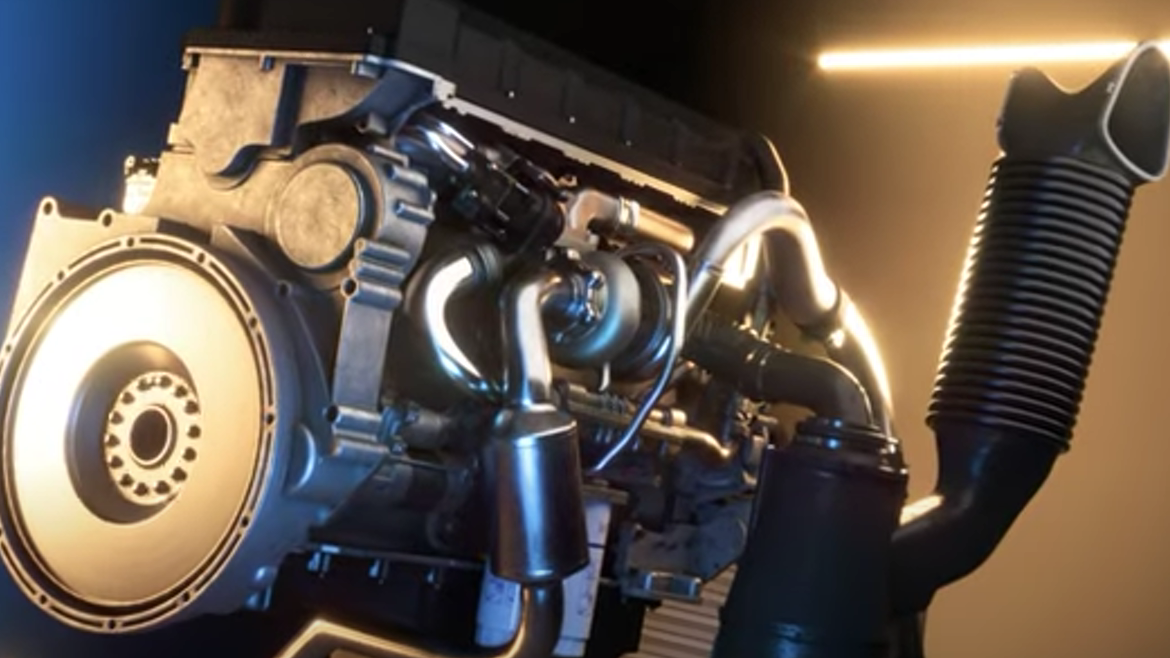The marketability of low viscosity lubricants for new engine hardware is beneficial for higher performance across the industry.
API CK-4 and FA-4 (previously known as PC-11A and PC-11B respectively) mark the first heavy duty diesel category upgrade in a decade. For existing trucks, API CK-4 offers simply better protection and performance at all levels.
But API FA-4 is where the future of the heavy duty market is beginning to take shape.
How do API CK-4 and FA-4 compare to API CJ-4?
Through a series of updated and new tests, API CK-4 lubricants simply offer more benefits for all engines. API CK-4 utilizes each of the existing API CJ-4 tests, plus two new tests as noted:
- Improved oxidative stability, via the new Mack T13 test
- Increased aeration resistance, via the new CAT Aeration test
- Increased contributions to fuel economy and reductions and CO2 emissions, via a new requirement for lower HTHS lubricants between 2.9 and 3.2 cP (for API FA-4 oils)
- Maintained wear and deposit protection
- Improved shear stability
An Unprecedented Split
The distinction between API CK-4 and API FA-4 marks the first time a major category has been split in two. API FA-4 lubricants will be held to the same stringent testing as their API CK-4 counterparts, but further enable new engine hardware designs with lower viscosity, fuel efficient lubricants. They offer the opportunity to maximize performance, durability and fuel economy.
The category's distinguishing factor is the introduction of a lower "high-temperature high-shear" (HTHS) viscosity into the heavy duty market. The focus on lower HTHS viscosity is gaining momentum as it is regarded as the latest view which more accurately mimics the engine oil behavior in the increasingly severe operating conditions. Thus, API FA-4 lubricants are defined as those with HTHS viscosities between 2.9cP and 3.2cP - for comparison, these lubricants will correspond with traditional kinematic viscosity measures like SAE 10W-30 and 5W-30, but will be referenced by their lower HTHS viscosities to distinguish from their API CK-4 counterparts.
"Advancements in our engine designs over the years have been driven by the need for greater fuel efficiency," said Greg Braziunas, Daimler Trucks North America. "Lubricants that enable improved efficiency are extremely beneficial to meeting the demands of fleet owners and owner operators. By developing our engines with API FA-4 technology in mind, we have the opportunity to maximize both efficiency and performance in our engine hardware."
API FA-4 lubricants are a significant part of the broad push to boost fuel economy and reduce emissions across the industry. Engine oils across all markets are trending toward lower viscosities for fuel economy benefits, and API certification and OEM approvals are crucial toward this end.
The Complexity Challenge
The bottom-line benefits for fleet owners with new hardware are clear: API FA-4 certified lubricants used in new model hardware typically offer an additional 0.5% to 1.0% fuel economy benefits at like-for-like viscosity grades. Compared with traditional SAE 15W-40 grades typical of the current market, those gains are even higher.
The opportunities granted to all stakeholders by the availability of API FA-4 lubricants must be seized.
- For OEMs: these lubricants bring a new opportunity to meet fuel economy goals - new engine design can take full advantage of lower viscosities without any compromises in the protection of those engines.
- For Oil Marketers: API FA-4 offers a new avenue to innovate within their product portfolios, satisfying a new market need.
- For End Users: choosing API FA-4 certified lubricants means lower overall operating and maintenance costs for confidence in their investments and a boosted bottom line.
The Future for Low Viscosities
First licensing for FA-4 lubricants was December 2016 - at the same time as first licensing for API CK-4 lubricants. This is an important time for API FA-4 products, as all stakeholders are able to gather significant amounts of real-world test mileage for the first time. This is a critical milestone as the industry continues to move toward higher performing lubricants.
"Proving real-world durability is critical," said Paul Basar, regional business manager, Lubrizol. "API FA-4 technology has already undergone millions of miles of field and lab tests, but the real test is billions of real world miles. At Lubrizol, we're confident in our additive chemistry, and we've been able to demonstrate the necessary protection."
Through its industry involvement and technical expertise, Lubrizol has anticipated the importance of API FA-4 technology, and has developed pilot products with tens of millions of miles accumulated from on- and off-road engines. Through these development efforts, Lubrizol's API FA-4 additive technology delivers the durability and protection (and the fuel economy benefits) that API FA-4 was developed to offer the industry, with additional OEM performance claims.
For more information on partnering with Lubrizol for licensing of API CK-4 and FA-4 lubricants, contact your account manager today.









